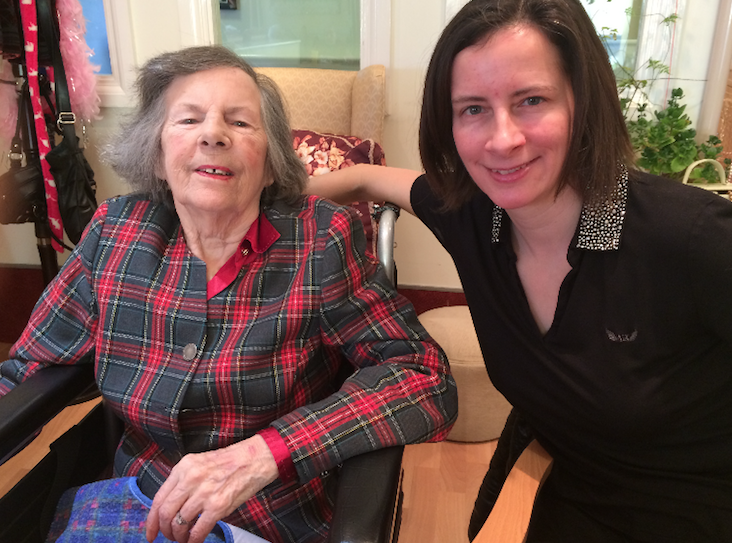Dementia Help was launched following the passing of our founder Christina Neal’s mum Hazel, who had vascular dementia. Christina writes about how her mum’s illness inspired her and how dementia brought them closer together.
It’s two years today since my beloved mum Hazel passed away. She had vascular dementia. During the last few months of her life, her appetite waned and she was virtually living on protein shakes and chocolate. It was an effort to get her to eat anything. She lost interest in food and had to be fed. She passed away at the nursing home where she’d lived for the previous two years, with me at her bedside. I held her hand as she slipped away. Although I still find the memories of her passing disturbing, I’m glad I could be there for her. I cancelled a business trip to Manchester to be by her side. She had developed a chest infection over the weekend and although no one at the care home told me it was terminal, I had a feeling she just didn’t have the physical strength left in her frail body to fight it. I’m so glad I stayed with her and didn’t take that trip, or she would have died alone.
During the last two years of her life, as her health and her memory failed her, a strange thing happened. Mum and I had always struggled to get along for most of her life. Although we could laugh and joke when we were together, and we shared a similar sense of humour, if we spent too much time together then we would clash and begin to argue. We were both stubborn, slightly fiery and occasionally emotional. I left home at the age of 18 to get away from mum’s overbearing and nagging ways. She could be hot-headed and prone to violent mood swings.
As she got older, she began to mellow, but we still clashed. In the last two years of her life, as the dementia took hold, we became closer than ever before. Somehow, despite the dementia affecting her moods and making her more aggressive when she was first diagnosed, in the later stages of the illness she became more relaxed. As she became less aware of what was going on around her, she chilled out. She also became much more touchy-feely. In the past, she didn’t want hugs or kisses. I hadn’t kissed my mum since I was 12. We rarely hugged. Yet in the last few years of her life, she wanted to hold my hand and we hugged frequently. She mellowed completely.
I also became fiercely protective of her. One family member took advantage of her generous and trusting nature, and from that moment on, I vowed that no one would exploit my mum ever again. The more she needed me, and the more child-like she became, the more I wanted to protect and take care of her. It brought out a nurturing, almost maternal side in me that I’d never experienced before. Mum had become the child, and I had become the parent. And I didn’t mind one bit.
People talk about the negative effects of dementia. I have personally written about how it has stripped away aspects of the person’s personality and removed their independence. This is all true. Yet mum’s relaxed attitude was an unexpected and strangely positive aspect of the disease.
Mum’s illness taught me a lot about life and how to appreciate the goodness during all the bad stuff. I will always miss her. She has inspired me and without mum, there would be no Dementia Help. Inadvertently, Hazel has helped tens of thousands of people improve their understanding and knowledge of dementia. I’m immensely proud of her.
